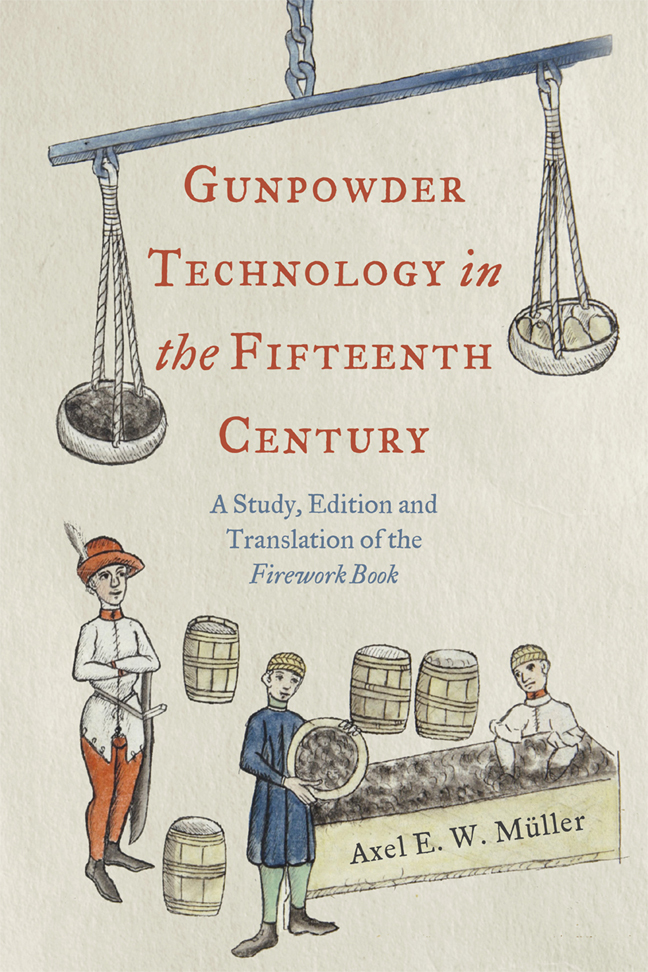 Gunpowder Technology in the Fifteenth Century
Gunpowder Technology in the Fifteenth Century 1 - The Firework Book Tradition
Published online by Cambridge University Press: 21 February 2024
Summary
This chapter provides an overview of the wider Firework Book tradition. It addresses whether a single genre existed or whether this term is more correctly applied to a collective group of more disparate texts. It considers the historiography of research on Firework Books and whether a distinction should be made between the different types of Firework Books. Ultimately, it explores how and where the Firework Book fits into the wider genre of fifteenth-century technical writings (with and without illustrations), and analyses the similarities and differences of existing manuscripts and how these have been interpreted by scholars.
Firework Books as a Coherent Genre
The case needs to be made for this being a coherent tradition which requires (or is entitled to include) a clearly definable group of texts. For the purpose of this chapter, I understand a Firework Book to be a text written in Early New High German, consisting of a number of core elements in relation to early gunpowder artillery, including: the so-called ‘Master Gunner's Questions’; the handling of saltpetre, sulphur, and charcoal; instructions on how to make, improve, preserve, and revitalize gunpowder; as well as other instructions related to attacks with gunpowder technology or how to defend against these. The core of the text was reproduced many times over more than a century. From 1529 onwards, it continued to be produced as printed text. The earliest version probably appeared during the first years of the fifteenth century and the last well into the sixteenth. The Firework Book was thus so frequently restructured and repackaged that no two surviving texts are identical in content.
All surviving manuscripts of the Firework Book were produced in the fifteenth and sixteenth centuries in the local dialects of the south-western region of present-day Bavaria. The texts of all surviving Firework Books, which all show variations, were written in fifteenth-century vernacular script, almost exclusively in red and dark brown ink.
As a group such books retain a coherence and similarities to an extent much greater than, for example, cookery books or fencing manuals from the same period and region. It is striking that, in fifteenth-century Germany, the south-western region of Bavaria was at the forefront of producing vernacular manuscripts of a technical nature. For example, Melitta Weiss Adamson and Trude Ehlert have examined the production of vernacular cookery books and their adjacent genres in fifteenth-century Germany.
- Type
- Chapter
- Information
- Gunpowder Technology in the Fifteenth CenturyA Study, Edition and Translation of the <i>Firework Book</i>, pp. 10 - 34Publisher: Boydell & BrewerPrint publication year: 2024


